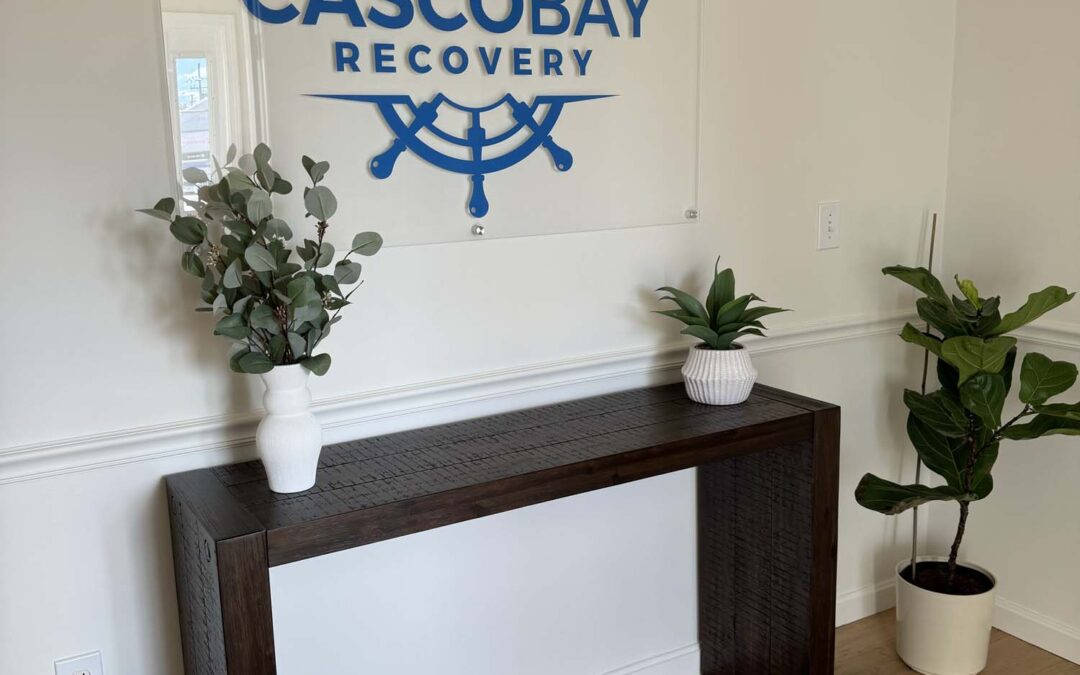You’ve finally kicked your addiction and committed to staying clean and sober. Congratulations! That’s a huge accomplishment! Now the real work begins.
Anger is one of the biggest threats to your recovery, and learning how to manage it healthily is critical. Unresolved anger was probably a significant trigger for your substance abuse in the first place. The same negative thought patterns that led you to drink or use drugs can fuel angry outbursts.
When anger starts bubbling up, it’s easy to fall back into old habits and numb those uncomfortable feelings with your drug of choice. But there are better ways to cope with anger that don’t involve relapsing. Exercise, artistic expression, and talk therapy have all been shown to help. The secret is to be aware of your anger’s early indicators and to have a plan of action ready to prevent an outburst. Your recovery depends on it.
What is the Relationship Between Anger and Substance Abuse?
Anger is a natural human emotion. It’s a response to perceived threats or unfair treatment, which prepares your body for fight mode. It can cause physical changes like an increased heart rate, blood pressure, and levels of adrenaline.
Anger and substance abuse go hand in hand. When you’re struggling with addiction, anger becomes your default emotion and your go-to coping mechanism. It becomes a vicious cycle where your anger feeds your addiction, and your addiction feeds your anger. The smallest inconveniences can send you into a rage. Unhealthy anger like this leads straight back to relapse.
While not everyone experiencing anger turns to substance abuse, and not everyone who abuses substances does so due to anger, understanding the complex relations between the two highlights the need for comprehensive treatment and support. By adopting holistic approaches that address anger management alongside addiction, individuals can break free from this cycle and establish a healthier, more sustainable recovery.
How Does Unhealthy Anger Management in Recovery Lead to Relapse?

Anger can easily ruin your relapse prevention plan for substance abuse recovery. Unhealthy ways of dealing with anger are a one-way ticket to sabotaging your recovery. Here’s how:
First, anger is a potent trigger for substance use. Many individuals use substances as a means to cope with intense emotions, including anger. If anger is not managed in a healthy way, it can lead to a strong desire or craving to use substances again to cope with these feelings.
Secondly, unhealthy anger can lead to strained relationships and social isolation. This lack of support can make the recovery process more challenging and increase the risk of relapse.
Thirdly, uncontrolled anger can cause stress, and chronic stress is a well-known trigger for relapse. It can lead to physical discomfort and emotional turmoil, increasing the likelihood of turning back to substances as a way to achieve temporary relief.
Lastly, anger can interfere with the ability to think clearly and make good decisions. This may lead to poor choices, including the decision to return to substance use.
Developing healthy anger management skills is crucial for maintaining long-term recovery. This might involve techniques like meditation, exercise, therapy, or other forms of stress management. Support from professionals, such as psychologists or addiction specialists, can be very beneficial in this process as well. Staying vigilant and committed to your coping strategies and self-care will help ensure your anger doesn’t become a stumbling block.
What are the Negative Thought Patterns that Trigger Anger and Substance Abuse?

When in recovery, unhealthy anger and cravings are often fueled by negative thought patterns. If left unchecked, these thoughts can drive you back to substance abuse. Some common negative thought patterns include:
- All-or-nothing thinking: Seeing things as either good or bad, right or wrong, with no in-between. For example, “If I have one drink, I’ve failed at my recovery.”
- The practice of expecting a catastrophe. For instance, “I will lose control and relapse if I get angry.”
- Jumping to conclusions: Interpreting something negatively without sufficient evidence. For example, “My friend didn’t call me back. They must be avoiding me.”
- Emotional reasoning: Believing that what you feel must be true automatically. For example, “I feel like a failure, so I must really be one.”
- Labeling: Putting yourself down by calling yourself offensive terms because of perceived shortcomings or errors. For example, “I’m so stupid for feeling this way.”
Learn to identify these thought patterns when they arise and reframe them in a more balanced, compassionate way. Talk to your therapist or a trusted friend, do journaling, do art projects, or exercise to work through anger and cravings in a healthy manner. Over time, managing anger through new coping skills and thought patterns will get easier, reducing your risk of chronic relapse.
Know Your Warning Signs
Anger is often an addiction’s way of protecting itself. The more aware you are of your personal anger triggers and warning signs, the better equipped you’ll be to manage unhealthy anger and cravings. Some common signs that your anger may be escalating include:
- Raised voice or yelling. Do you notice your volume and tone intensifying?
- Clenched jaw or fists. Tightness in your body is a clue that your anger is building up.
- Negative self-talk. Thoughts like “This isn’t fair!” or “I can’t stand this!” fuel anger and frustration.
- Blaming others. When you start pointing fingers at the people or events around you, your anger will likely follow.
- Increased heart rate. Feeling your pulse speed up is a physical sign your body is becoming aroused by anger or stress.
Do not ignore the warning signs! With time and effort, you will become more adept at recognizing triggers early on and controlling your feelings and reactions.
What are the Ways to Cool Down Quickly?
When faced with intense anger or emotional distress, it’s important to find ways to cool down quickly and regain control over your emotions. Here are some strategies to help you cool down effectively:
Deep breathing
Taking some deep, slow breaths can help lower your heart rate and blood pressure, relaxing your body and mind. Find a quiet spot, close your eyes, and focus on inhaling and exhaling steadily through your nose. Inhale deeply through your nose, and exhale slowly through your mouth. Continue this for a while until you feel yourself beginning to relax.
Go for a walk
Getting some light exercise, like walking, is a great way to work off pent-up energy and frustration in a healthy way. Take a 10-20 minute walk outside in nature if possible. The fresh air and vitamin D can do wonders for your mood and stress levels. If it’s not possible to go outside, even pacing around your space can help.
Do some light exercise
Along with walking, doing some simple stretches or yoga poses is an easy way to release anger and frustration. Gentle exercises like shoulder rolls, neck stretches, or calf raises can help work out tension and rage in a constructive manner.
Journal your feelings
Writing down your angry thoughts and feelings can be cathartic. Grab a notebook and just let your feelings flow onto the page without judgment. Getting the words out of your head and onto paper can help you gain a new perspective and calm the intensity of your anger. You may gain insight into the underlying cause of your anger in the process.
Listen to calming music
Put on some soothing instrumental music and focus on the melodies and rhythms. Music is a great distraction tool that can shift your mood and calm angry feelings. Soft piano, ambient electronica, nature sounds, or lo-fi beats are great options.
What are the Most Effective Anger Management Strategies and Therapies?
Anger management strategies can vary in effectiveness depending on individual preferences and circumstances. The key is finding coping strategies that resonate with you and your needs. If you struggle in controlling your anger on your own, therapy for anger management in recovery may be very helpful. Here are some commonly recommended and effective strategies for managing anger:
Exercise Provides Mental and Physical Benefits
Exercise is essential for both physical and mental health in recovery. Going for a walk or jog, doing some yoga, or just getting outside for 30 minutes a day can help reduce anger and cravings. Exercise releases endorphins, which improve your mood and act as natural stress relievers. It also gives you an outlet to release pent-up energy and frustration. Make exercise a daily habit to support your recovery.
Artistic Expression as Anger Management Therapy
Artistic expression through activities like art, music, writing, or crafts provides a creative outlet for your emotions. Painting, drawing, or doodling can be very cathartic. Learning to play an instrument or write stories and poetry are productive ways to channel angry feelings into something positive. Art therapy uses the creative process to help you work through emotional issues, reduce stress, and improve your mood. See if your treatment center offers groups focused on art, music, or creative writing.
Professional Counseling and Therapy
Speaking with a professional counselor or therapist who understands substance abuse and anger issues is highly beneficial. Cognitive-behavioral therapy helps identify negative thought patterns related to anger and addiction and provides strategies to reframe those thoughts. Counseling also addresses the underlying causes of anger and helps you develop healthier ways of coping with uncomfortable emotions. If cost is an issue, verify with your insurance if they cover counseling or if your treatment center offers free or low-cost options.
Find Help for Substance Abuse and Anger at Casco Bay Recovery

If you or someone you know is seeking help for substance abuse and anger management, consider reaching out to Casco Bay Recovery at our rehab in Portland, Maine. We offer comprehensive treatment and support tailored to meet your unique needs. Contact us today to learn more about our addiction treatment programs in Portland, Maine, and take your first step towards a healthier and more fulfilling life!






